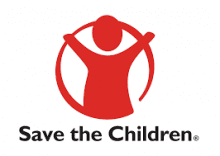The international NGO Save the Children has expressed concern that almost all West and Central African countries have closed schools and universities nationwide to contain the spread of the COVID-19, noting that more than 120 million children and students in these regions are out of school.
“Although the response to COVID-19 is primarily focused on health systems, the pandemic is already having a devastating impact on children beyond the health aspect. In an attempt to contain the COVID-19 pandemic, governments are closing schools around the world. This situation could further increase the vulnerability of marginalized children in West and Central Africa and especially in the Sahel,” the NGO warned in a statement to APA on Friday.
Save the Children is concerned about the limited mechanisms in place to ensure that children are able to continue learning from home.
“Their education is interrupted, children no longer have a safe place like a school. As a result, they become more vulnerable to abuse, neglect, violence or exploitation, and are more likely, especially girls, to drop out of school altogether,” it said.
While some countries are better prepared to offer “distant learning” to children during the closures, it noted, the most marginalized girls and boys living in rural areas or on the outskirts of big cities will find it difficult to access distant education.
These include children from low-income households, those with disabilities and others already affected by conflict and humanitarian crises.
National education systems in DRC, Burkina Faso, Mali, Niger and northern Nigeria, cited by Save the Children, already face considerable challenges due to ongoing conflict and displacement and a critical lack of funding.
COVID-19 further exacerbates this situation.
“Education must be integrated into the current response to the COVID-19 pandemic because the future of millions of children is at stake. The disease may disappear over time, but children will continue to suffer the consequences for the rest of their lives,” said Philippe Adapoe, Save the Children’s Regional Director for West and Central Africa.
“Managing the health crisis and containing the virus must of course be a priority, but we must also ensure that children can continue their education from home. So far, limited mechanisms have been put in place to ensure the continuity of children’s education at home. This is a challenge that governments will have to meet, with the help of the international community. If we relegate this continuity of education to the background, many children, especially girls, are at risk of dropping out of school. Ebola, even though it is a different epidemic, should teach us a lesson,” he concluded.
Save the Children called on governments and the international community to put measures in place to mitigate the impact of school closures, to provide appropriate care and specific support for children, as well as e-learning, as school closures will hit the most marginalized children hardest, and to put in place measures to mitigate the risks to children, as the impact of school closures goes beyond disruption of education.
CP/te/lb/as/APA


